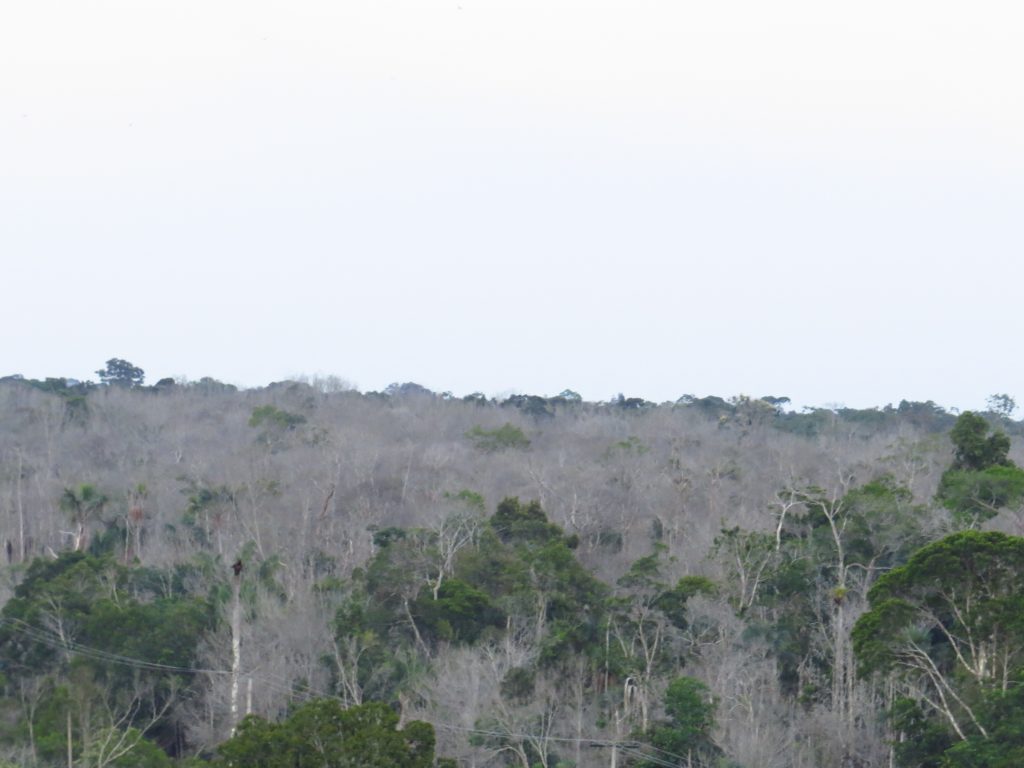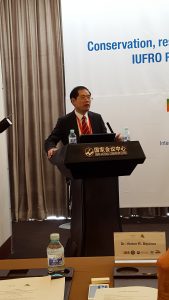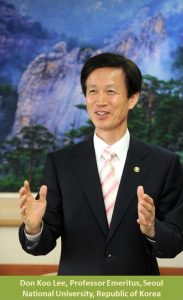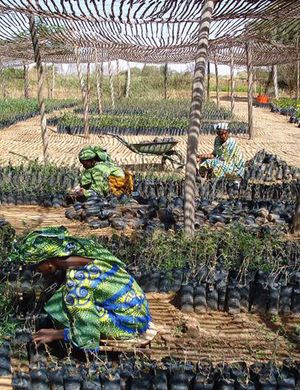Spotlight #84 – Task Force probes ‘whys’ behind increased tree mortality
Spotlight #84 – Task Force probes ‘whys’ behind increased tree mortality

Tree mortality appears to be increasing at unprecedented rates.
One may be tempted to think: So what? Trees regenerate. They’ll grow back.
But, for a lot of reasons, it’s not quite that simple.
Read more…Addressing the challenge of increasing dryland areas

Lu Wen Ming delivering welcome remarks at the dryland session. Photo: Gerda Wolfrum, IUFRO Headquarters
Session A-05(108): Conservation, restoration and sustainable use of dryland ecosystems
There is clear evidence of the fact that the growth rate of CO2 concentration has been increasing and, together with other greenhouse gases, this increase is a main driver of global warming. Unfortunately, these gases have a relatively long lifetime – CO2, for example, has a lifetime of 200-400 years – which means that we are putting a heavy burden on future generations.
Desertification is one of the results of rising temperatures. In China there are actually 4.52 million km2 of drylands constituting 47.1% of the total landmass. Parts of these dryland areas are threatened by degradation and desertification. In Mongolia we are witnessing a marked decrease of the number and area of lakes. This is mainly due to human activities such as coal extraction and irrigation. These and other anthropogenic drivers of change in drylands intensify the pressure on land, which leads to land degradation and decreases the ecosystem value, thus affecting people’s livelihoods. Read more…
Interview with Don Koo Lee, Professor Emeritus, Seoul National University, Republic of Korea
Keynote speaker at the IUFRO Regional Congress for Asia and Oceania – Forests for Sustainable Development: The Role of Research
 Professor Lee, the overarching theme of this IUFRO Regional Congress for Asia and Oceania is “Forests for Sustainable Development: The Role of Research”. When you gave your opening speech as President of IUFRO at the XXIII IUFRO World Congress 2010 in Seoul, you stressed the importance of sustainability, equity, growth and development and the need to understand that “Forest is our life, our hope, and our future.”
Professor Lee, the overarching theme of this IUFRO Regional Congress for Asia and Oceania is “Forests for Sustainable Development: The Role of Research”. When you gave your opening speech as President of IUFRO at the XXIII IUFRO World Congress 2010 in Seoul, you stressed the importance of sustainability, equity, growth and development and the need to understand that “Forest is our life, our hope, and our future.”
Q: What would you say has been achieved in the quest for sustainable development since the 2010 IUFRO World Congress?
A: Since then the important role of forests for life, hope and future has been further strengthened internationally by collaborative partnership activities, (e.g. co-research, advanced studies, site visits, trainings, conferences, etc.) especially in Asia, Africa and Latin America, as well as nationally by the Forest For Life National Movement in Korea. Read more…
Spotlight #27 – Genes the means to screen future forest scene
Genes the means to screen future forest scene
Forest ecosystem restoration is a critical component in tackling climate change, combatting biodiversity loss and desertification, and for providing products and services that support livelihoods at a local level.
For those reasons, restoring and rehabilitating forests and degraded lands will be one of the major environmental challenges of this century.
But, as a recent thematic study coordinated by Bioversity International, a IUFRO Member Organization, for the Food and Agriculture Organization of the United Nations – Genetic Considerations in Ecosystem Restoration Using Native Tree Species – notes, there is more to forest restoration than simply planting trees.

